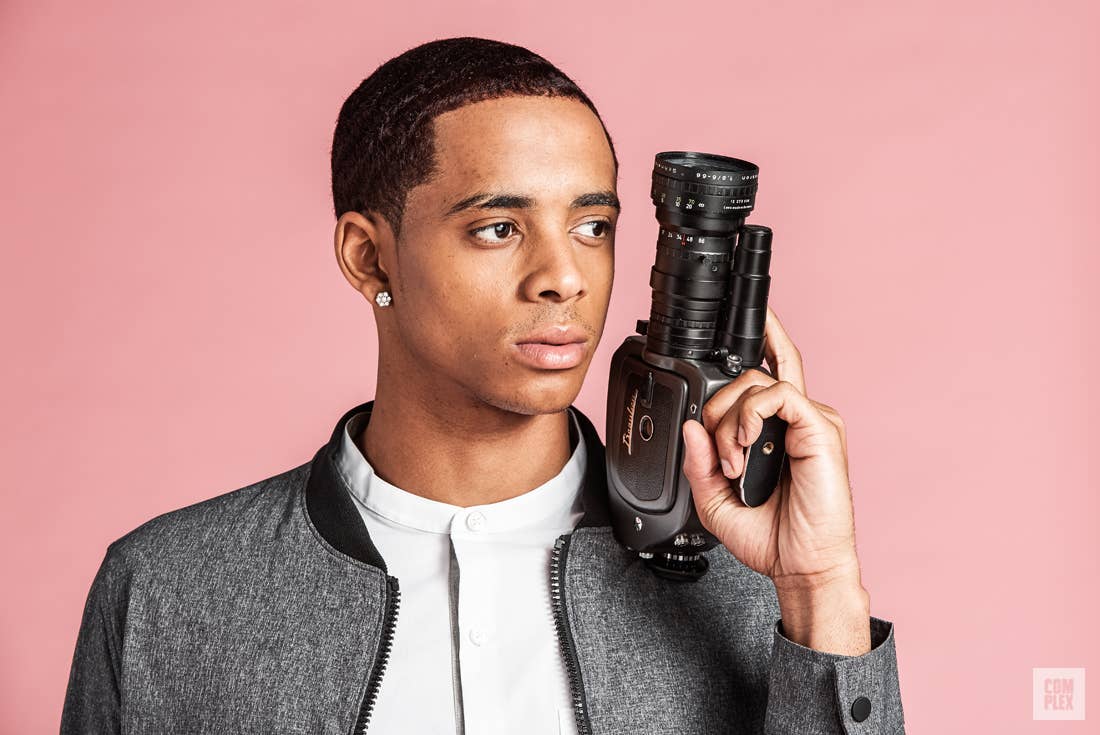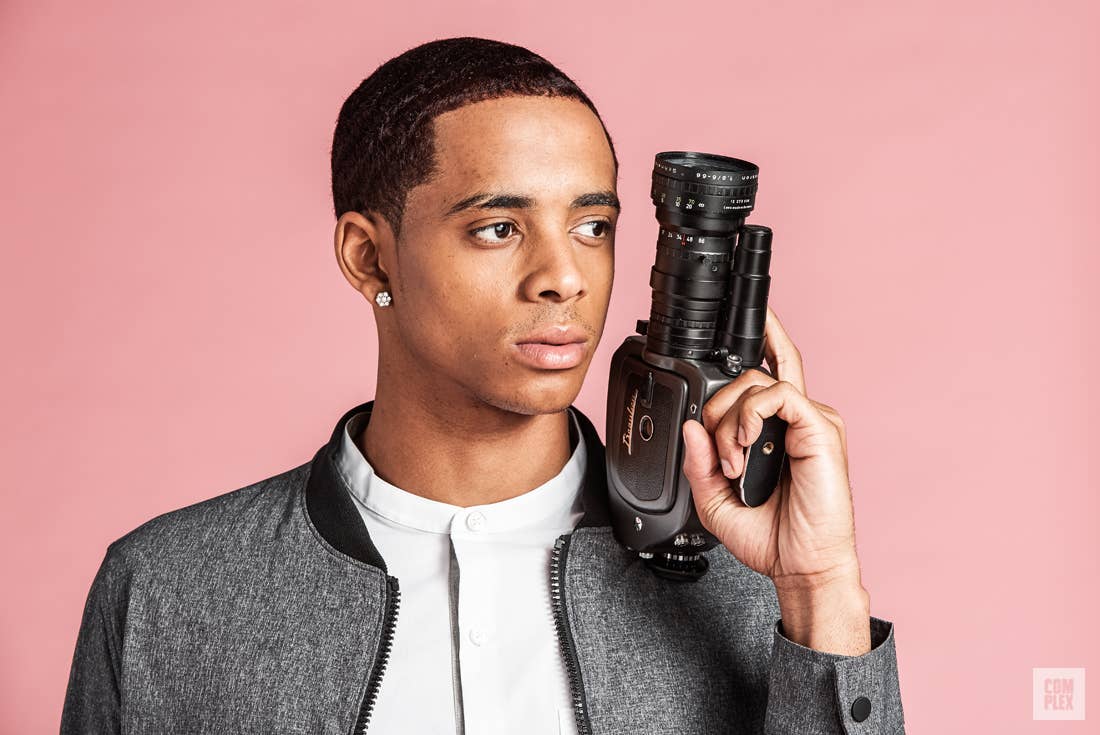
Cordell Broadus wants his first feature-length film to be about his grandfather. A man who he calls “Frank Lucas, but on the West Coast;” a club owner with the Rolls Royces, the houses, and the mink coats to match. “In Long Beach, California, [my grandfather] was kind of like the town’s hero,” Cordell says. “Because he had all the money and connections.”
In Cordell’s mind, the movie would be from the perspective of his father at age 12. Instead of growing up to sell drugs like Cordell’s granddad did, this character would make money legally. Oh, and at the climax, “He ends up being one of the biggest entertainers in the world.”
“I feel like it's important for people to see where I come from, as well as the history of black males growing up,” Cordell explains. “It’s only right that I pay homage and create from that.”
For those familiar with his name, hearing Cordell Broadus speak about filmmaking may seem out of sorts. Most people know the 21-year-old as a D1 college football phenomenon, and/or the middle son of Calvin Cordozar Broadus, Jr., a.k.a. Snoop Dogg.
But in 2016, the gridiron prodigy made headlines when he unexpectedly quit football. Rather than play wide receiver at UCLA on a full scholarship, he chose to pursue a film production degree and chase his creative passions. The decision wasn’t an easy one; his father’s drive for Cordell to find greatness on the field was so strong that it became the subject of a docuseries called Snoop & Son: A Dad’s Dream.
“How do you tell the people you love, that put in all this time, money, and effort into your dream that you said you wanted to do, that you no longer want to do it?” he reflects. “You sound kinda crazy.”
Since those conversations, Cordell has carved out stakes in the worlds of modeling, style, filmmaking, and philanthropy, juggling what seems like a million things at once. His self-entrepreneurial spirit places him at the forefront of a young, hustle-conscious generation. At the same time, it puts him at odds with what people think of him, both as a young black male in America, and a celebrity’s son.
Reframing that narrative is the only thing he knows.
“I think the new generation, we just want to see new things,” Cordell explains. “I’m tired of stuff being regurgitated. I want to see a new way, a new face. I want to see innovation. I waited [for] that, and just took it upon myself to be that.”
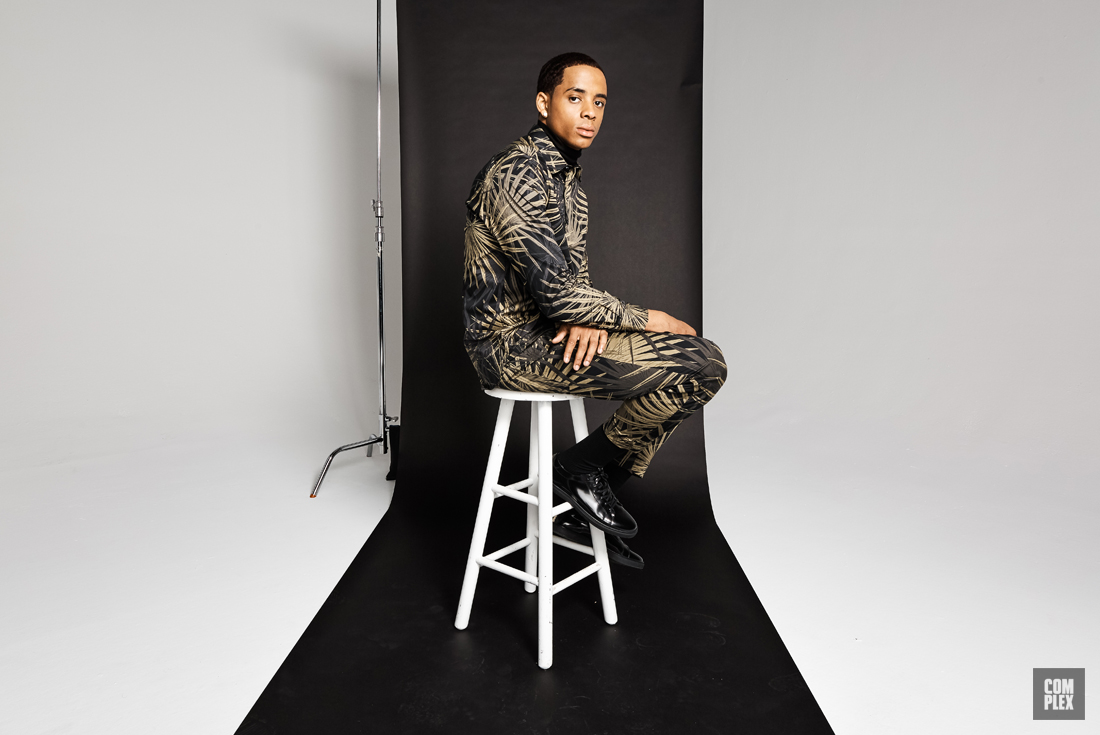
It’s 10:37 a.m., and Cordell emerges from his dressing room. He dons a black tracksuit covered in jungle palms that fits his style perfectly, with equal parts bombastic New York funk, and slim L.A. chic. He confidently jaunts over to the tablet near the back wall of the studio and turns on his dad’s music. As it blares from the speakers, a big smile consumes Cordell’s face, and he looks completely uninhibited. Drake-“Hotline Bling” style. He is firmly in his element, grooving in the flamboyant fits.
“I want my style to be influential. I want it to be innovative. And I want it to be smooth,” Cordell says in a soft-spoken yet confident tone that resembles his father's. “Always got to check those three things off before I leave the house… or I can’t leave.”
This afternoon, we link with Cordell for an exclusive photo shoot at Manhattan’s Bathhouse Studios. The occasion? To celebrate his induction into Kenneth Cole’s “Courageous Class,” which highlights individuals who redefine the phrase “role model.”
"You know, for a young black kid, who is an athlete, to make a movie… That just didn’t happen."
As Cordell showcases the new retro-casual clothing line—which includes sleek vests and turtlenecks reminiscent of James Brown, one of his fashion icons—I sit behind the cameras and ask him a range of questions: About his childhood, influences, why he decided to upend his life, and of course, his style.
“Los Angeles had that gritty, original style in the 1990s. Like the Jheri curls, the rope chains, the Dickie pants, the khakis, the Chucks,” he tells me. “All that stuff played a big part of my life.”
He knows that’s his father’s world, but Cordell has a way of making those signature looks his own. In fact, it’s now Snoop who looks to his son for fashion hints.
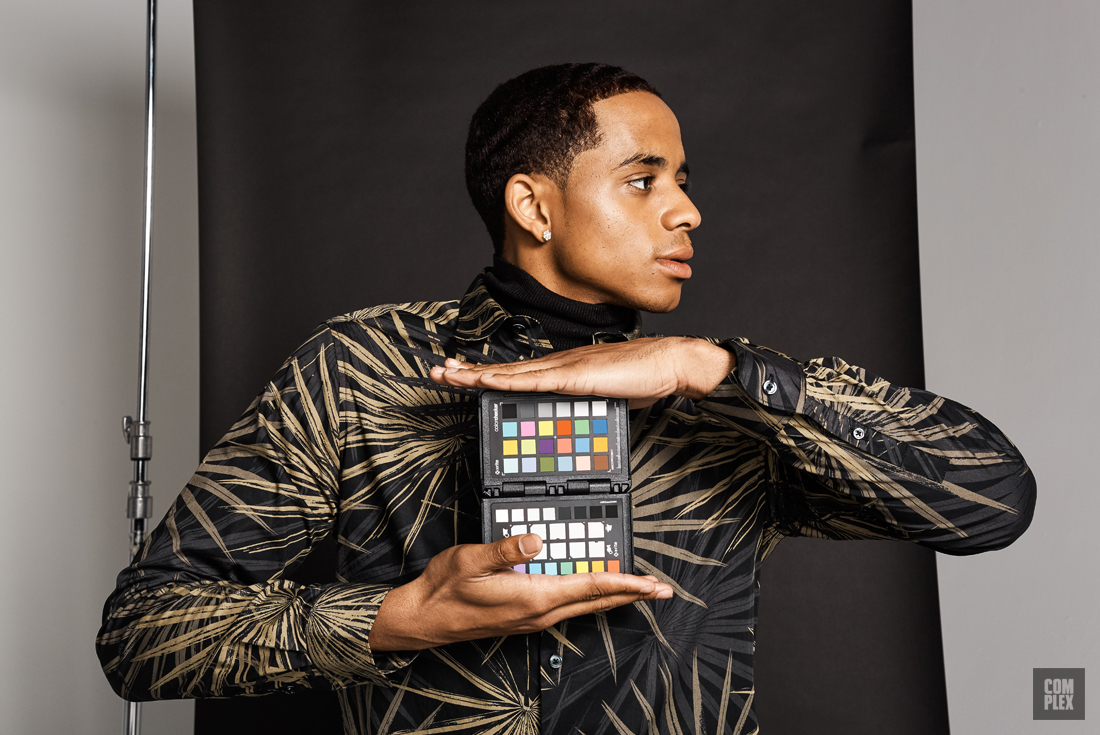
“The cycle of life [keeps] evolving, and going in circles,” Cordell explains.
While he turns to Instagram, as many of us do, for the hottest looks and fits, film has always been an indispensable source for Cordell’s style inspo. In fact, he once called his creative team immediately after watching The Royal Tenenbaums—Wes Anderson’s classic comedy of synchronized tennis outfits—brimming with new design ideas.
“Fashion and film go hand in hand,” he says. “Watching films, you see the various styles that the characters are in, and the various locations. All that stuff matters 'cause when you create, you want everything to look nice.”
Cordell’s love of film started at a young age. When Snoop was home from touring, the entire family would watch Quentin Tarantino flicks, old 1970s movies, and anything that was popular at the time. Cordell was drawn to movies that captured the grittiness of reality.
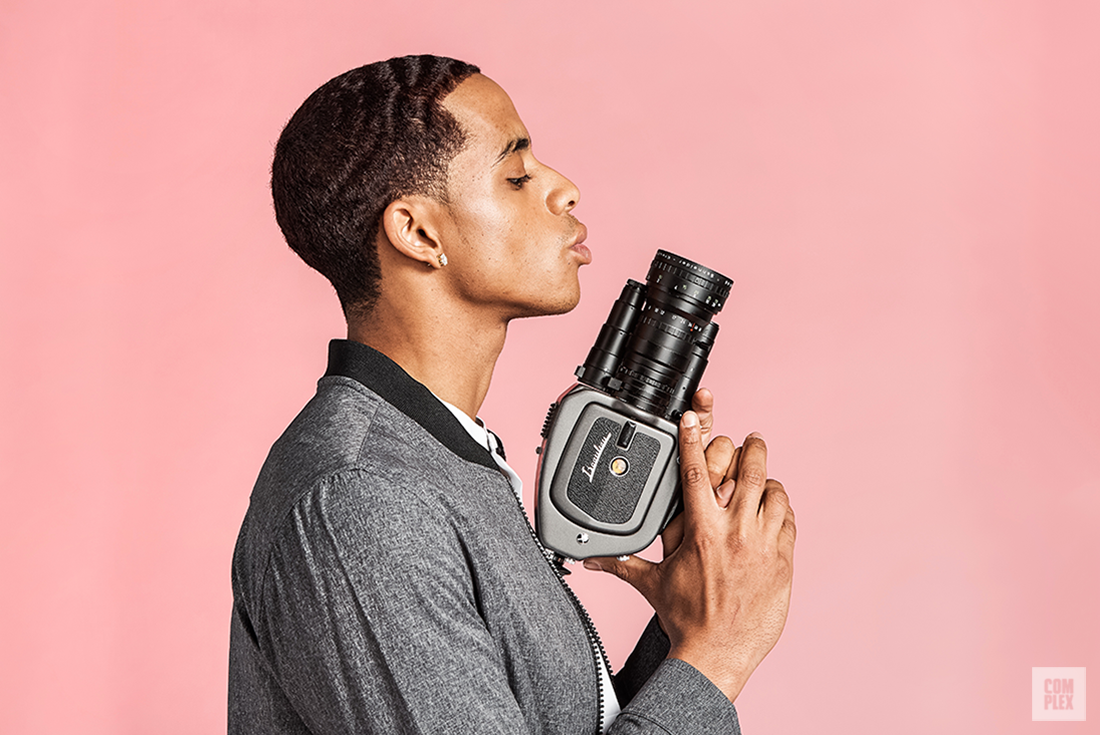
“It can impact a lot of people visually to understand other stories and relate to others' backgrounds and what they've been through, their struggles, and how they overcame it,” Cordell says. “The character should grow, the film should grow, and you as a person should grow.”
As a kid, Cordell never envisioned becoming a filmmaker. Directors, he says, just didn’t look like him.
“You know, for a young black kid, who is an athlete, to make a movie. That just didn’t happen.”
“It’s just knowing my last name is legacy. I want to continue it. I want to make sure it's going for the next 100, 200 years.”
That perspective changed when Cordell received a brochure in the mail from USC, which highlighted notable alumni, with Ryan Coogler sitting front and center. Like Cordell, Coogler abandoned a football career as a wide receiver to pursue a degree in film, with one of his earliest projects screening at the Tribeca Film Festival. Coogler would go on to direct Fruitvale Station, Creed, and now, the record-breaking blockbuster Black Panther.
Coogler broke the mold of the famous Hollywood director; it made the barriers to success look malleable. Maybe there was a future in film for Cordell, and for anyone, regardless of skin color.
“Young filmmakers out there [need to] know that you don't necessarily have to go to film school. You don't have to ‘know’ how to direct,” Cordell says. “You don't have to go through all those things, and have a certain criteria to create something. Creating is just having a vision.”
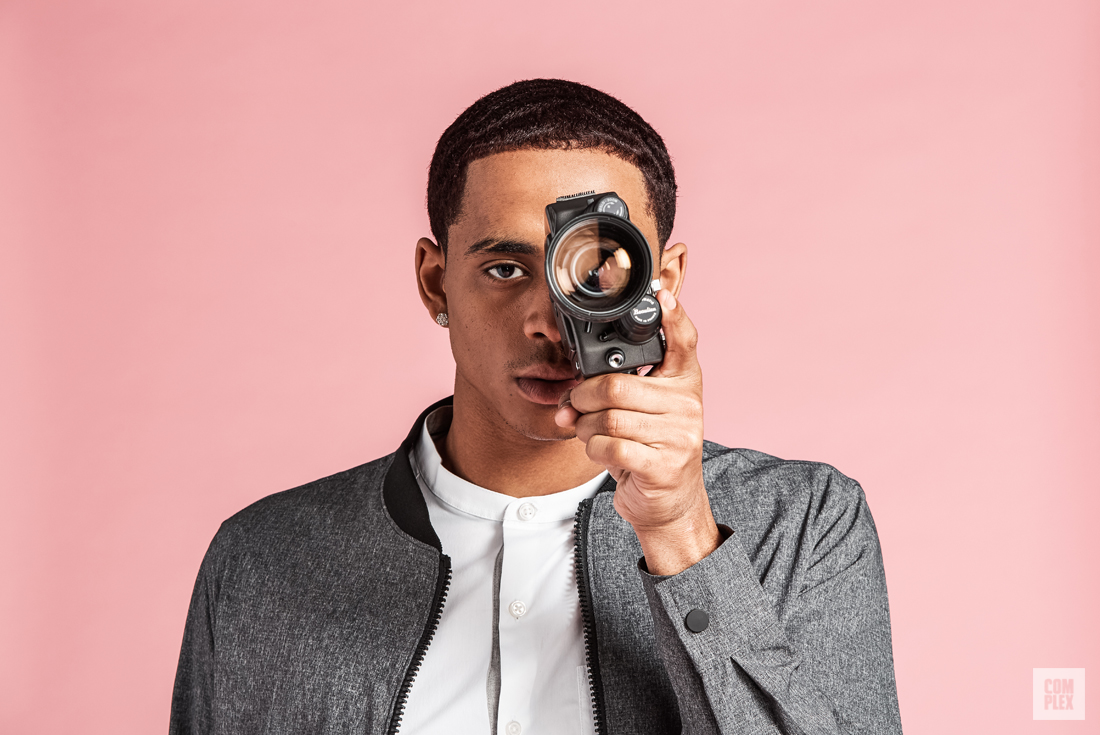
Although his football days are behind him, Cordell recalls just how formative those experiences on the gridiron truly were. For years, his dad ran (and continues to run) a youth football league for kids from low-income communities. Snoop was one of Cordell’s first coaches.
As Cordell got older, college scouts began taking an interest in his skills, as well as his last name. However, like many of the friends he played football with, Cordell couldn’t help but feel “boxed in.” He wasn’t interested in rapping, which meant that finding success on his own would have to come through football (or so he thought). His less privileged teammates, who grew up in rough neighborhoods, had a similar mindset. Football was life. If that failed, there was nothing else.
“A lot of those kids won't be able to make it to the NFL, and just seeing them have their own reasons to wanna go—take care of their family, be successful, get out the hood—really opened up my eyes,” Cordell says. “It made me want to show kids, especially the younger minorities, that it is possible to do these things that I'm doing now.”
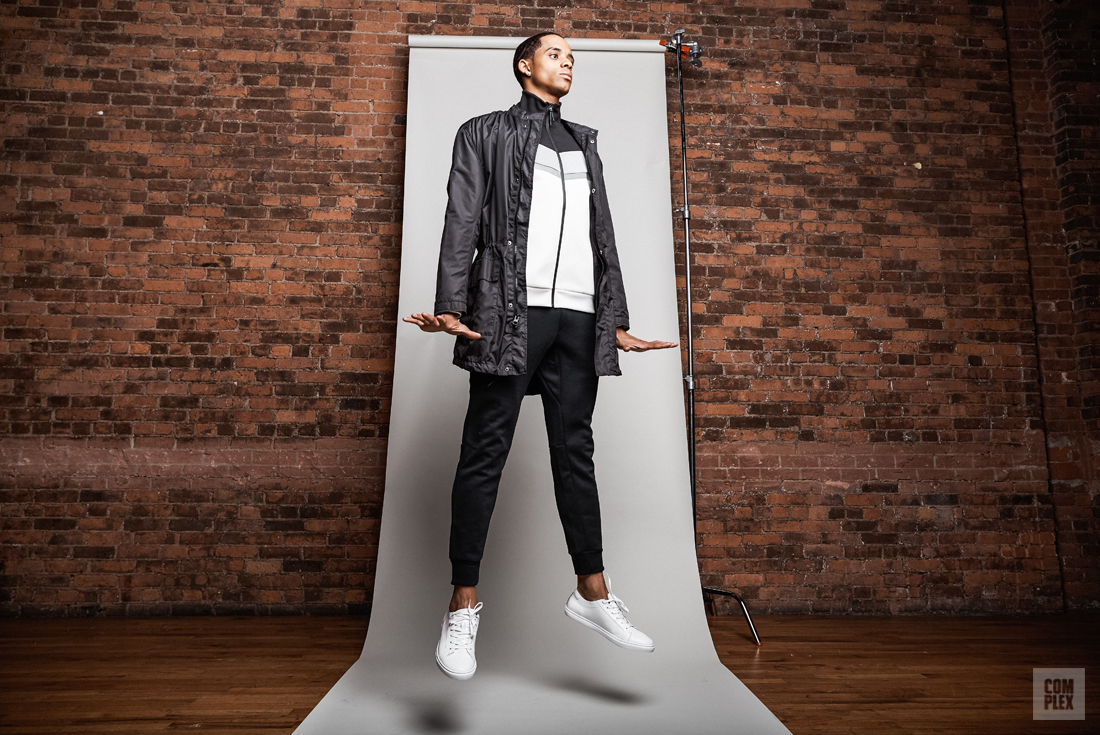
That’s what led Cordell to start Revolt of the Youth, a non-profit that supports youth programs in underprivileged communities throughout the Greater Los Angeles area. In the past, they’ve teamed with HavASole to give out free shoes, and offered supplies to the homeless. Cordell himself frequently speaks to kids about creating the future they want to see. The group’s name, in fact, stems from that core philosophy.
“We want to let kids know ‘No more of us being known to be reckless or young and wild.’ We want to make smart decisions, we want to be entrepreneurs, and innovators,” Cordell says. “It [starts] with believing, ‘cause once you believe, you’ll end up satisfied with whatever it is you’re chasing.”
For Cordell, that could mean a lot of things. Like his role as creative director of an athleisure brand. Or his modeling contracts with several of the world’s top agencies. And don’t forget—he’s got homework, too.
So why the heavy hustle? With his last name and family wealth, he can have and do anything he wants. He doesn’t need to model or make films, just like he doesn’t need to make a name for himself or try to inspire the youth. He has the resources to not be part of this hustle generation.
Why elect the more challenging route when he can just sit on his couch?
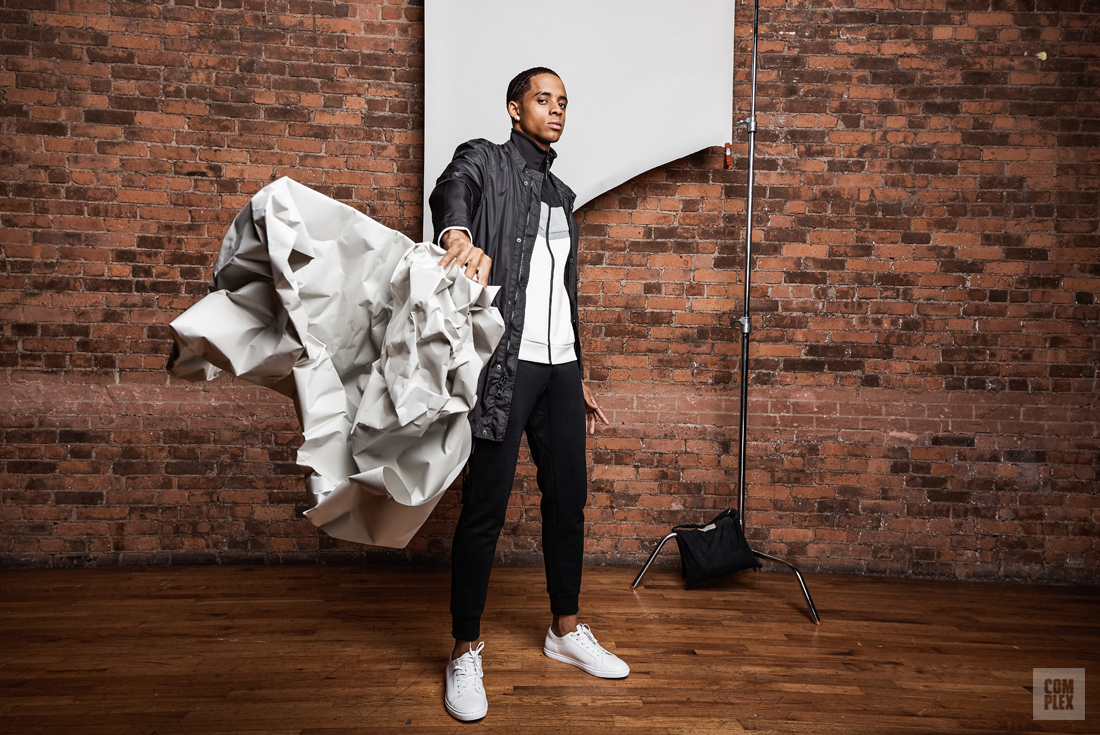
“It’s knowing my last name is legacy. I want to continue it. I want to make sure it's going for the next 100, 200 years,” Cordell says. “I feel like I'm at a very important point in my life where I can make that realistic. My father did what he did in the entertainment world and all the charitable work. I wanna keep that legacy going, because he worked hard for that.
“My brain, and the way I feel—I like to dream big, and I don’t like thinking realistically. I like dreaming,” he adds. “I like thinking of crazy stuff. I wanna see it come true, ‘cause my dad did the same thing, and my grandfather did the same thing. Why can’t I?”

